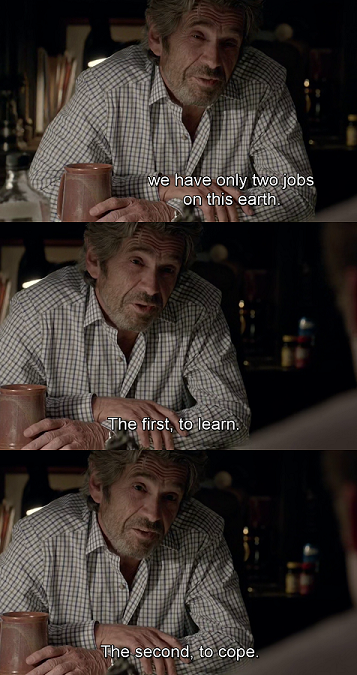Class Is Not Dismissed: The Decision to Pursue Additional Education
No matter when you last left a classroom, whether it was high school, college, or beyond, chances are good that you never stopped learning. In both professional and personal situations, changing, adapting and learning new skills are endemic to the human experience.
In one of my favorite television shows, Shameless, the character of Lip Gallagher enrolls in a 4-year university and becomes the protégé of a wizened, jaded, alcoholic professor who explains his position succinctly:

Easy enough for a fictional white male tenured professor to say, right? But what does that mean for the rest of us?
The Strada-Gallup Education Consumer Survey recently polled individuals in the United States about their drivers for seeking additional training and motivators for returning back to school. Their survey included education in a number of diverse capacities, such attending four-year and two-year higher education institutions, but also seeking out training, certifications, and other programs. Not surprisingly, the results were pretty insightful:
- 46% of Americans believe they need additional education to advance in their careers.
- 53% of adults without degrees say they are likely or very likely to pursue more education in the next five years.
- Younger, non-white, and urban residents feel a greater need to pursue additional education than their peers.
However, as most of us know, it’s easier to talk about returning to school than it is to actually put the pencil to paper. When considering acquiring additional education, some of the biggest factors indicated by the report were if the education would lead to a guaranteed employment outcome (57%), finding courses and training that fit an individual’s schedule (54%) and taking courses and training that employers express as a need (47%).
It’s important to note that for the purposes of the survey, “additional education” was not limited to the pursuit of traditional 2-year, 4-year, or graduate degrees. Additional education is at the heart of professional development, whether it takes the shape of a certificate program, seminar series, or learning the next skill or software that takes your career to the next level. So, even if those traditional pathways to education seem daunting, starting small and taking the next step can be just as valid and impactful to you and your employer.
So, maybe instead of going back to school, we should ensure that the next generation of professionals never really leaves a learning environment to begin with.
Survey Source: https://www.stradaeducation.org/report/back-to-school/
Audrey Walls is the graduate assistant for the Center for Corporate Education, counseling intern at VCU Business Career Services, and an M.Ed. in Counselor Education candidate in the School of Education. She believes in MBTI, narrative theory, and the power of a good resume.
